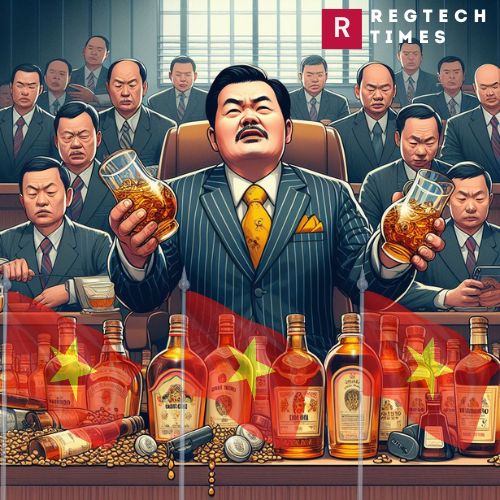In an era where business ethics and transparency are not just encouraged but expected, a recent court case in Vietnam has underscored the severe consequences of fraudulent activities. This article delves into the intricate details of a high-profile fraud case involving Tran Qui Thanh, a prominent beverage tycoon, and his daughters. It sheds light on the implications for the business community and the ongoing fight against corruption in Vietnam. The case has drawn international attention and has become a focal point in discussions about business ethics in Southeast Asia.
Allegations on Tran Qui Thanh
Tran Qui Thanh, the 71-year-old chairman of Tan Hiep Phat, one of Vietnam’s largest beverage companies, was alleged to have masterminded scams to appropriate assets put up as collateral against loans issued in 2019 and 2020. Known for its range of bottled tea and energy drinks, Tan Hiep Phat found itself at the center of a scandal that rocked the nation.
The court found that Thanh refused to return the assets even when borrowers repaid their loans with interest, often citing various pretexts. The total amount involved in the scam is estimated to be around $40 million. The allegations have raised questions about the integrity of business practices in the region and have led to calls for increased regulation and oversight.
Charges Imposed on Tran Qui Thanh
Thanh was sentenced to eight years in prison, a sentence that sent a clear message to the business community about the seriousness of such offenses. His daughters, Tran Uyen Phuong, and Tran Ngoc Bich, were also implicated in the case. Phuong, the company’s deputy CEO, was sentenced to four years in jail, while Bich received a suspended three-year sentence.
This case is part of a wider campaign in Vietnam to eradicate endemic corruption, which has seen more than 4,400 individuals charged with criminal offenses. The charges imposed reflect the seriousness of the offenses and the commitment of the Vietnamese authorities to tackle corruption.
Corruption in Vietnam
Corruption in Vietnam permeates various sectors, fueled by deficiencies in legal frameworks, financial instability, and inconsistent bureaucratic processes. Surveys conducted in 2015 indicated a minor decline in petty corruption nationwide, yet high-level corruption surged, indicative of the abuse of political authority. This pervasive issue profoundly affects administration, education, and law enforcement in Vietnam. By January 2018, Vietnam registered among the highest rates of bribery practices, underscoring the entrenched nature of corruption within the country.
The Impact on the Business Community
The case has drawn significant attention due to the high-profile nature of the accused and the severity of the charges. It serves as a stark reminder of the risks of corruption and the importance of maintaining ethical business practices. The sentencing of Thanh and his daughters has had a profound impact on the business community, prompting many to reevaluate their practices and policies. The case has also led to increased scrutiny of business practices in Vietnam, with calls for greater transparency and accountability.
The Importance of Ethical Business Practices
Maintaining ethical standards in business is essential for safeguarding a company’s reputation, steering clear of legal entanglements, and nurturing constructive rapport with stakeholders. Ethically driven enterprises tend to draw loyal clientele, recruit exceptional talent, and may even garner industry recognition. Conversely, businesses perceived as lacking in ethics risk encountering consumer boycotts, social media backlash, and potential legal entanglements. The Tran Qui Thanh case serves as a poignant reminder of the imperative for businesses to adhere to ethical guidelines, thus averting legal liabilities and preserving their standing in the marketplace.
The sentencing of Tran Qui Thanh and his daughters marks a significant milestone in Vietnam’s fight against corruption. It sends a clear message to businesses and investors about the risks of engaging in fraudulent activities and the serious consequences that can result. As Vietnam continues its campaign to stamp out corruption, it is hoped that this case will serve as a deterrent to others considering similar actions. The country’s commitment to upholding the rule of law and maintaining a fair and transparent business environment is clear. The Tran Qui Thanh case serves as a stark reminder of the importance of ethical business practices and the severe consequences of fraudulent activities.


